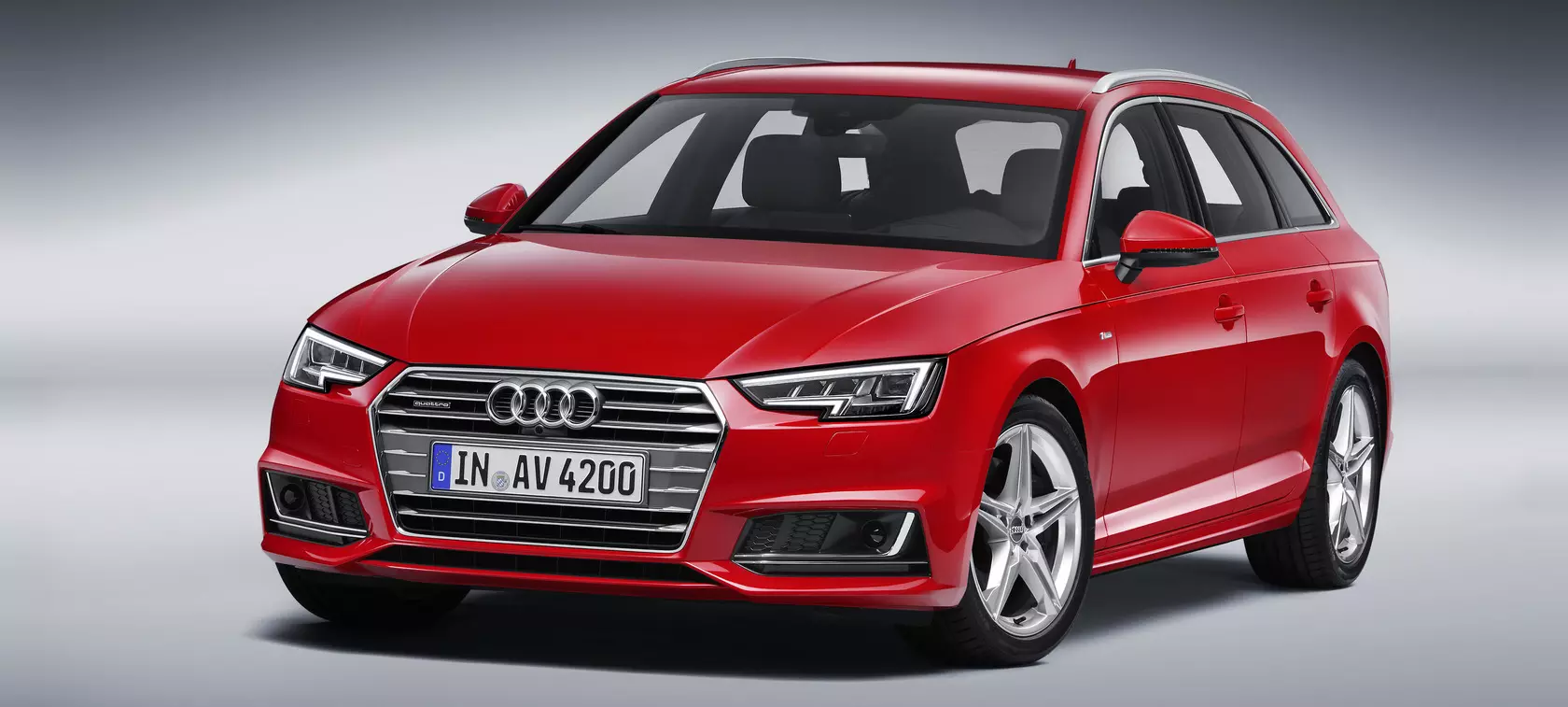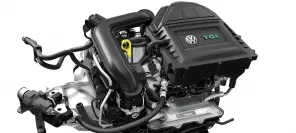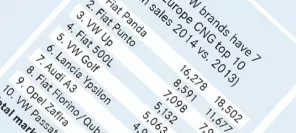- Main page
- Search
- Up to date
- Products
- Technology
- Vehicles
- Video
- Conversion Payback Simulator
Port Injection - Conversion Payback Simulator
Direct Injection - Conversion Payback Simulator
Diesel - Newsletter
Audi A4 Avant g-tron - new old stock
 loading results...
loading results...With the introduction of the A4 Avant, Audi's g-tron line-up will expand from a single model (A3 Sportback g-tron) to a duo. Unlike the smaller sibling, the A4 features a 2-litre TFSI engine, offering 170 PS of power and 270 Nm of torque. But don't go running to the nearest Audi dealership just yet – the car will become available a while from now, in late 2016. What makes it worth waiting for, apart from the fact that it runs on CNG?
 © AudiOK, so this is actually a Quattro version with a TDI engine under the bonnet, but how can you show a car that has been announced but doesn't really exist yet?
© AudiOK, so this is actually a Quattro version with a TDI engine under the bonnet, but how can you show a car that has been announced but doesn't really exist yet?The car will feature lightweight pressure tanks to store the lightweight fuel in. They will be able to hold 19 kg/25,38 m3 of natural gas compressed to 200 bars. Each tank will consist of a polyamide liner and outer wrapping made of carbon-fiber-reinforced plastic (CFRP) and glass-fiber-reinforced plastic (GFRP). The fiber materials are bound together with epoxy resin. Tanks made with this technology are extremely durable (way beyond what steel and aluminum can offer), yet much lighter than metal-based counterparts.
Audi claims the A4 Avant g-tron will make do with just 4 kg/5,34 m3 of CNG per 100 km. We'll believe it when we see it, but before we can put the car through its paces, let's give it the benefit of the doubt. When there's less than 0,6 kg/0,8 m3 of natural gas left in the tanks and pressure drops below 10 bars, the engine automatically and seamlessly switches over to petrol. However, petrol is more than just emergency fuel – the petrol tank is large enough to provide an additional range of 450 km.
As for environmental performance, Audi improves the already outstandingly low emission figures for natural gas by producing e-gas – synthetic methane manufactured from CO2 and hydrogen with wind-generated electricity. When you buy a g-tron, you get a special filling-station card, with which you don't pay, but let Audi know how much CNG you have bought. Audi then compensates your emissions by producing a corresponding amount of e-gas. So even though the car actually spews out some CO2, it's absorbed in the process of synthetic methane manufacturing. Also, to make sure there's sufficient e-gas for future g-tron models, Audi is developing new methods of the fuel's production, including biological methanation with the help of bacteria. We'll let you know when any new information comes by.
You may also find these interesting:
 loading results...
loading results...








